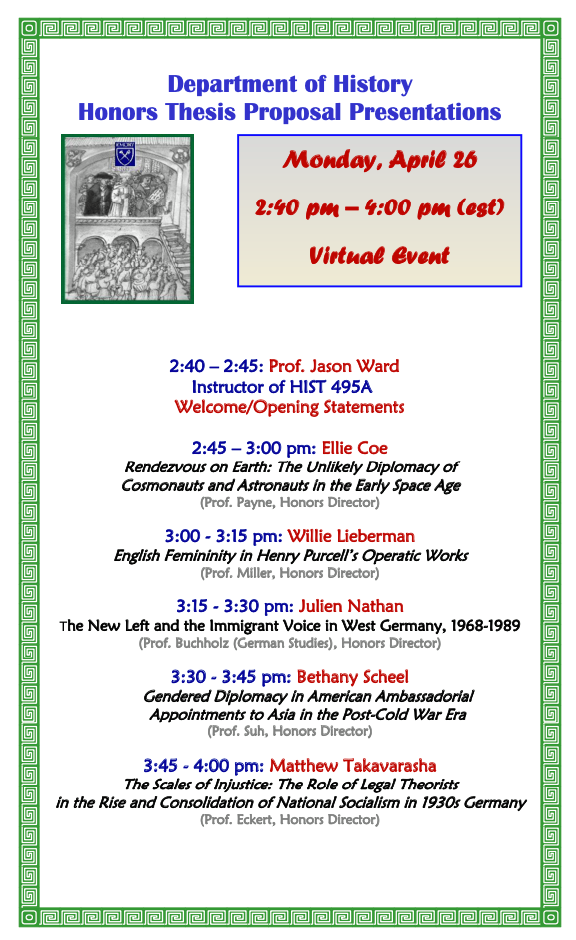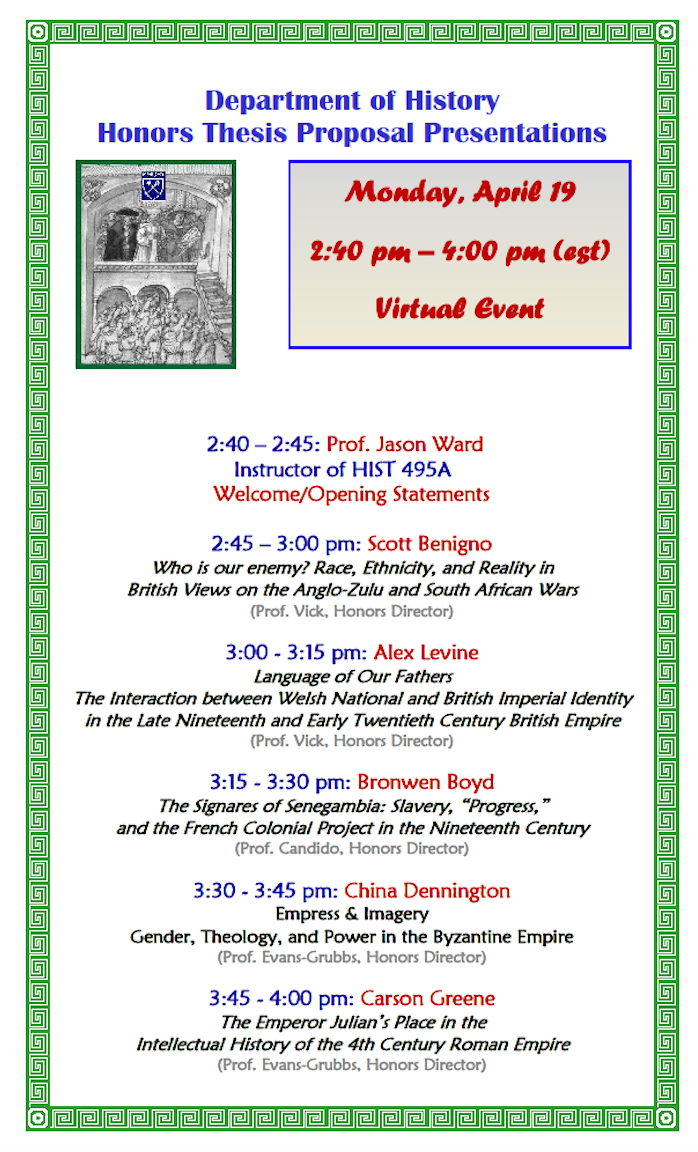Emory’s Halle Institute for Global Research has awarded multiple undergraduate and graduate students and faculty members from the History Department with research funding throughout the 2020-’21 academic year. Directed by Dr. Jeffrey Lesser, Samuel Candler Dobbs Professor of History, the Halle Institute supports and promotes global research opportunities for faculty, students, and visiting scholars throughout all of Emory’s schools. See the History Department’s recipients and their funded projects below.
Rethinking Global Inequalities (with Goizueta Business and Society Institute)
Michelle Armstrong-Partida – “Singlewomen: Enslaved and Free in the Late Medieval Mediterranean”
Halle-CFDE Global Atlanta Innovative Teaching (GAIT) Grants
Adriana Chira – “Human Trafficking in World History”
URC-Halle International Research Awards in partnership with the University Research Council (URC)
Astrid M. Eckert – “Germany and the Global Commons: Environment, Diplomacy, and the Market”
Graduate Global Research Fellows
Georgia Brunner – Rwanda/Italy/Belgium
Undergraduate Global Research Fellows
Bronwen Boyd – “The Signares of Senegambia: Slavery, “Progress,” and the French Colonial Project in the Nineteenth Century,” Emory College of Arts and Sciences: History, French Studies
Ellie Coe – “Unlikely Friendships: The Little-Known Meetings of Cosmonauts and Astronauts in the Early Space Age,” Emory College of Arts and Sciences: History, Russian and East European Studies
Alex Levine – “Dueling Dragons: Examining Welsh National Identity Through Late Nineteenth and Early Twentieth Century British Imperial Involvement in China,” Emory College of Arts and Sciences: History
Annie Li – “A Comparative History of the Activism of Chinese American Churches and Taiwanese Churches,” Emory College of Arts and Sciences: History, Sociology
Willie Lieberman – “English Femininity in Purcell’s Operas,” Emory College of Arts and Sciences: History
Julien Nathan – “Who is the Nation: Analyzing the Relationship Between Gastarbeiter and the New Left Student Movement, 1960-1973,” Emory College of Arts and Sciences: History



